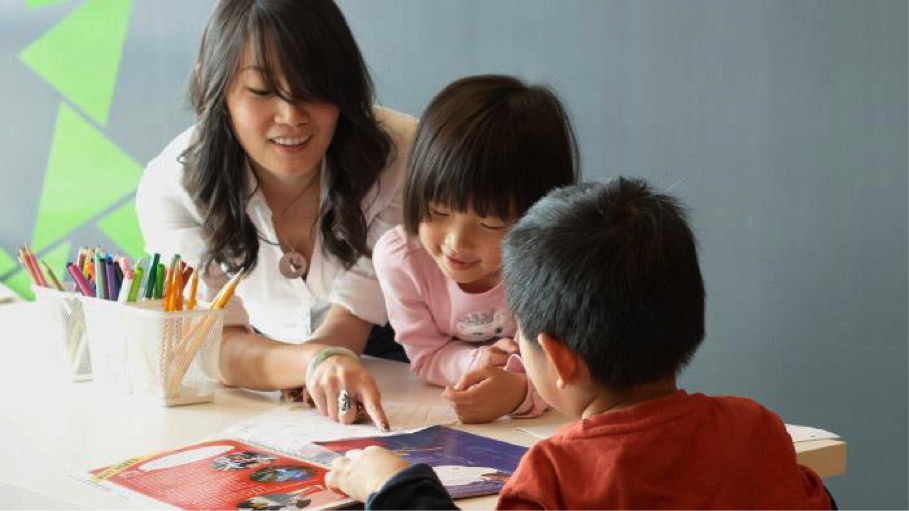When it comes to learning English, it goes without saying that grammar and vocabulary are extremely important. However, the most progressive teachers understand that for students to really expand their language skills, learning activities must stretch beyond memorization and rote recall. ESL instruction should help students learn those important language building blocks and then apply them in creative and challenging ways.
Enriched ESL classes help students develop the critical thinking skills they need to engage with the world around them, conduct research, ask thoughtful questions, and interact with peers and teachers in meaningful ways. They learn how to use language to express complex ideas, rather than simply memorize new vocabulary or rules of grammar.
Here are a few of the ways Little Mountain Learning Academy helps students develop the sophisticated English language skills they need to excel in school and in life:
Open-Ended Questions to Prompt Analysis
In typical learning environments, ESL students are presented with questions that have only one right answer. How do you say “snow” in English, or how does one conjugate the verb “to be”?
Students have to work hard to memorize the answers to questions like these, but that is often where the learning stops. They remain uncertain about how to use their knowledge in more complex ways.
After school English courses that focus on enrichment challenge students by asking open-ended questions that demand more than a one-word, predictable response. A very simple example is the difference between asking kids, “Who was the main character in the short story?” and “What do you think the story was trying to teach readers?” The first answer requires little thought, while the second demands analysis – and a much more advanced use of English.
As students get older, they use these advanced language skills to read and understand novels, write essays, discuss important current events, and reflect on complex social issues – skills they must strengthen to do well in English language arts classes at school.
Debate to Develop Research & Conversation Skills
When students are encouraged to form an opinion, communicate it and listen to multiple sides of an argument, they use advanced English skills including research and spontaneous response. Debate is an excellent tool for developing the sophisticated conversational skills students need to formulate and articulate views on a range of topics, weigh in on important issues, and evaluate others’ ideas.
Whether we’re teaching phonics for kids who are just learning to read, or leading university prep courses for high school students – discussion and debate are foundational elements of Little Mountain’s ESL programs.
Problem Solving and Collaboration
On a daily basis, students are challenged to solve problems both inside and outside of the classroom. Understanding how to think through and resolve a problem (independently and in a small group) is an essential academic and life skill. It’s also a fantastic way to strengthen English language skills.
An enriched ESL program will provide students with problem-solving tasks that require them to discuss possible outcomes together, agree on a solution, and present it to the group. This type of activity develops advanced communication skills as students debate their ideas and work together to articulate a final answer. “Problems” may range from social challenges, like how to make friends when you start a new school – to questions about how we might combat racism, global warming, or economic inequality. These are common themes in the books students read in English language arts classes, and an effective ESL class will help children learn how to respond to them in meaningful ways.
What other kinds of language skills do you think kids need to succeed at school and in life?



